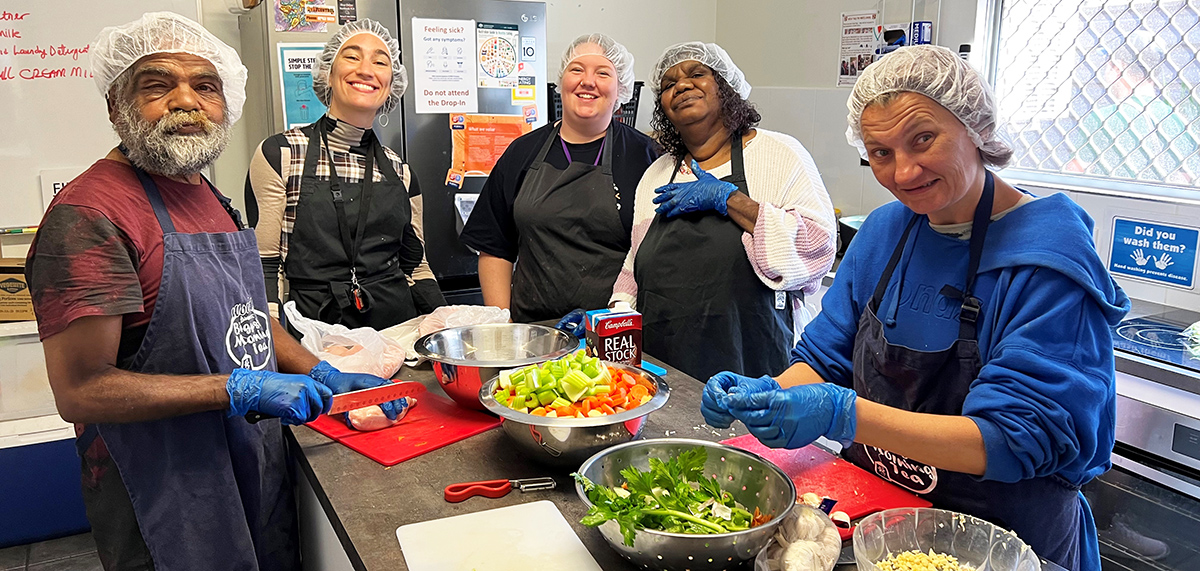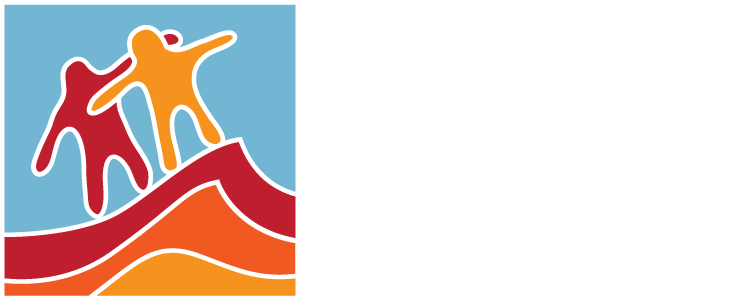MHACA’s vision is that Central Australia is a safe and inclusive community that actively fosters and supports good mental health.
Lifestyle choices can have a big impact on mental health. People with poorer physical health are at a greater risk for certain mental illnesses, whilst looking after your body can greatly improve your overall sense of wellbeing.
What can you do?
Eating well, exercising regularly, getting enough sleep, and reducing exposure to alcohol, smoking and other drugs support good mental health. Reducing stress, undertaking relaxation activities, keeping connected to others and spending time in nature all provide physical and mental health benefits. Small changes to your daily life can make a big difference to how you feel.
Keep Active
Only one third of Australians are getting enough exercise. Australian guidelines recommend adults do at least 30 minutes of moderate physical activity most days of the week. Exercise releases chemicals like endorphins and serotonin that can help with anxiety, depression and can improve your mood. You don’t have to run a marathon or join a sports team, even just a short work can make a difference.
If you need some support on getting started go to https://www.healthdirect.gov.au/tips-for-getting-active
Eat Well
When it comes to supporting good mental health, our diet plays a critical role. Beyond the physical health impacts, diets high in saturated fats and refined sugars impact how we feel emotionally. We need to avoid processed food and incorporate a diet which includes drinking plenty of water and enjoying a wide variety of foods from the five food groups (vegetables, fruit, grains, meat/alternatives and dairy/alternatives) every day.
Find more information at https://daa.asn.au/smart-eating-for-you/smart-eating-fast-facts/
Sleep More
Getting a good night’s sleep is critical for our physical and mental health. Over the last few decades our sleep quality and quantity has declined. Poor sleep leads to a range of health impacts including weight gain, depression, anxiety, and lethargy. Sleep helps to regulate the chemicals in our brain that transmit information. If we don’t get enough sleep we can start to feel depressed or anxious. Most adults need 7-8 hours a sleep a night.
Find tips to support good sleep habits at https://www.sleephealthfoundation.org.au/
Avoid Alcohol and Smoking
Alcohol, smoking and other drug use have detrimental impacts on physical health. Smoking and alcohol are often used when people are under stress, but these addictive substances can make symptoms worse in the long run. Whilst they can create an immediate sense of relaxation, the people who use them then experience withdrawal symptoms which can increase anxiety. Smoking is not recommended and Australian guidelines for alcohol use for healthy adults is no more than 2 standard drinks a day.
Find out more at https://www.beyondblue.org.au/the-facts/drugs-alcohol-and-mental-health
Reduce Stress
Try activities like deep breathing, mindfulness, meditation, walking the dog, reading a book, having a cup of tea, listening to music or reading a magazine or book. Shifting your focus can make a big difference to managing stress levels.
Find some quick stress reduction tips at https://www.health.qld.gov.au/news-events/news/how-to-reduce-stress-right-now
Take a Technology Detox
Over exposure to screen time can be bad for our physical and mental health. Being able to unplug can make you feel more energised and connected to the world around you. Set a time limit each day to check social media, and balance time online with connecting with others and relaxing activities.
Find some detox tips and stories from people trying tech detoxing at https://www.theguardian.com/technology/2018/jan/13/how-to-quit-your-tech-phone-digital-detox
Enjoy Nature
Studies show that spending time in nature can improve our self-esteem and mood, reduce stress levels and reduce symptoms of anxiety and depression. Nature is both restorative for people with mental health challenges and protective for general mental health.
If you live in Central Australia find some walking and outdoor activities at https://northernterritory.com/alice-springs-and-surrounds/see-and-do/outdoor-activities/walking-and-hiking
Be Socially Connected
Being connected to others is important for our physical and mental wellbeing. Social isolation is known to be a trigger for mental illness so work on developing healthy relationships with family friends, neighbours and co-workers. Consider volunteering or online social groups.
Find some tips to improve social connections at https://5waystowellbeing.org.au/5-ways/connect/
Ask For Help
If you need support to start making changes speak to your GP or utilise online resources. If you feel overwhelmed or are in distress access the support services available.
Healthy Bodies Support Healthy Minds
MHACA is increasing both community and participant understanding of the importance of lifestyle choices through the Healthy Bodies Support Healthy Minds campaign.
MHACA promotes how people can support their mental health and wellbeing at community events, in the media and on social media.
MHACA has also made a whole of organisation commitment to increasing the physical health of our participants.
People living with mental illness experience much poorer physical health than others for a range of reasons including:
- side effects of medications
- silos between physical and mental health services
- stigma and discrimination
- diagnostic overshadowing.
MHACA participants have been building confidence and skills in weekly activities as part of the Healthy Bodies Support Healthy Minds Program. The program has a focus on exercise, healthy cooking and increasing water consumption.

